Whether you’re an ardent environmentalist or simply someone seeking a deeper connection with the world around you, these 5 books on eco-literature invite you to explore a multitude of themes surrounding the environment.
As July rolls around, the warmth of summer embraces us, and the world seems to come alive in vibrant hues of green. It is during this month that we are reminded of the beauty and fragility of our planet as we commemorate an occasion that resonates with nature lovers and environmental enthusiasts alike — Earth Overshoot Day, a day when humanity’s demand for ecological resources and services in a given year exceeds what Earth can regenerate in that year.
Beyond the Earth Overshoot Day festivities, it makes us think of the importance of delving into eco-literature and the profound impact that literature has on our understanding of the environment and our responsibility towards it. Eco-literature, a genre dedicated to exploring the intricate relationship between humans and the natural world, offers a gateway into the ecological challenges we face and potential solutions that lie within our reach. From the urgency of climate change to the delicate balance of ecosystems, from tales of human triumph to cautionary narratives, the five books we have curated for you below will offer insights and perspectives on the environment and our relationship with it that are vital in shaping our collective consciousness.
Let’s start gently with a book on an easy-going topic everyone is familiar with: Trees.
- The Hidden Life of Trees: What They Feel, How They Communicate by Peter Wohlleben (2015)
- The Nature Fix: Why Nature Makes Us Happier, Healthier, and More Creative by Florence Williams (2017)
- Silent Spring by Rachel Carson (1962)
- The Sixth Extinction: An Unnatural History by Elizabeth Kolbert (2014)
- The World Without Us by Alan Weisman (2007)
- Bonus Eco-Literature Books
The Hidden Life of Trees: What They Feel, How They Communicate by Peter Wohlleben (2015)
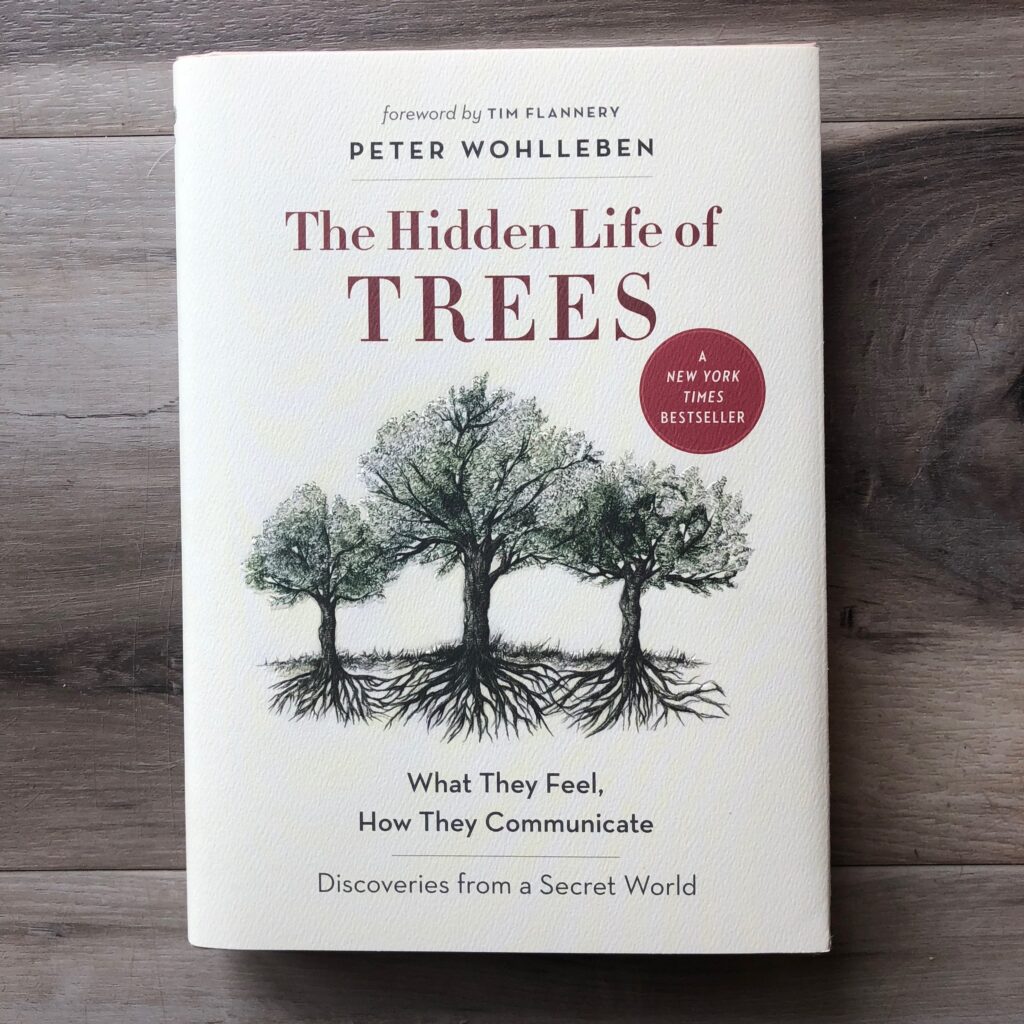
Peter Wohlleben, a German forester, takes us into the enchanting world of trees, uncovering their secrets, social networks, and remarkable communication abilities. Through scientific research and personal anecdotes, Wohlleben reveals the interconnectedness and intelligence of forests. He challenges our perception of trees as solitary entities, encouraging us to recognise the intricate web of life within forests and the importance of preserving these ecosystems.
The Hidden Life of Trees illuminates the profound interdependence of nature and emphasises the significance of biodiversity in sustaining ecosystems. Wohlleben’s work fosters a sense of awe and reverence for the natural world, inspiring readers to view forests as living, breathing communities worthy of our protection.
This book highlights the importance of trees in the environmental landscape and offers insights into the complexity and harmony of ecosystems. The Hidden Life of Trees encourages readers to develop a deeper connection with nature and advocates for responsible stewardship of our forests.
Up next, let’s delve into how nature contributes to our overall well-being.
Also Read: David Attenborough: A Life on Our Planet [2020] Netflix Review – A Clarion Call to Save the World
The Nature Fix: Why Nature Makes Us Happier, Healthier, and More Creative by Florence Williams (2017)
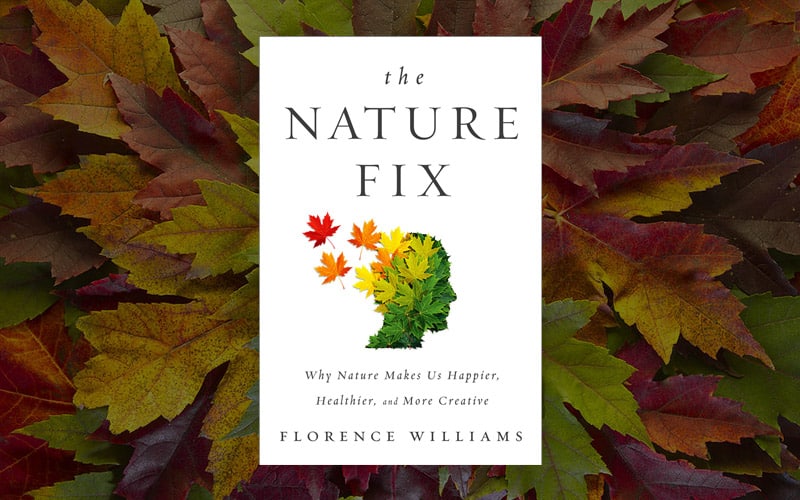
Florence Williams delves into the scientific research and personal experiences that demonstrate the positive impact of nature on human well-being. Through immersive journeys and interviews with experts, Williams explores the healing and transformative power of spending time in nature. From forest bathing to wilderness therapy, she explores how nature enhances our physical and mental health, creativity, and overall quality of life.
The Nature Fix offers compelling evidence that reconnecting with nature can enhance our well-being, reduce stress, and ignite our creativity. Williams’ exploration of the human-nature connection inspires readers to seek meaningful interactions with the natural world in their daily lives.
This book bridges the gap between scientific research and everyday experiences, underlining the importance of incorporating nature into our urbanised lifestyles. The Nature Fix reminds us of the inherent bond between humans and the environment and highlights the value of preserving and protecting natural spaces.
Onto slightly more gloom things now, the first book that pioneered the environmental movement – a pivotal moment in the history of eco-literature.
Silent Spring by Rachel Carson (1962)
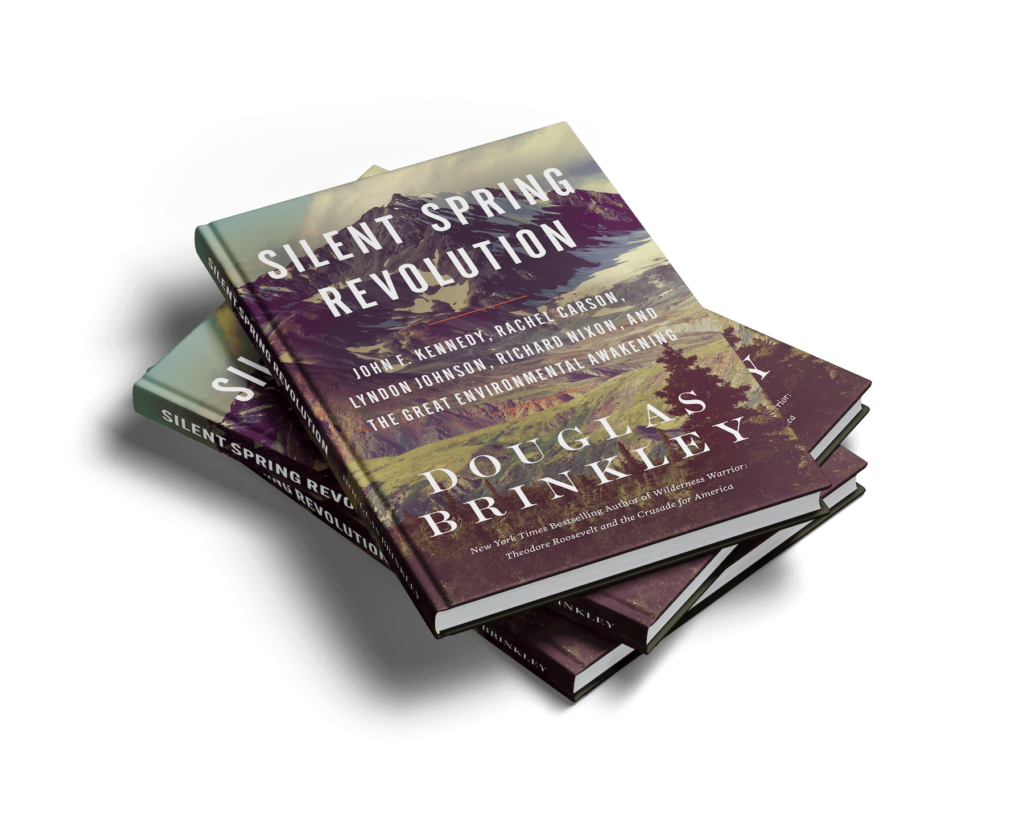
Rachel Carson, an American marine biologist and conservationist, paved the way for modern environmentalism with her groundbreaking work. Through her meticulous research and compelling writing, she raised awareness about the harmful effects of pesticides on the environment, particularly on bird populations.
Silent Spring is a seminal work that exposes the dangers of chemical pesticides and their impact on ecosystems. Carson’s powerful narrative shed light on the interconnectedness of nature and human activities, ultimately leading to a significant shift in public awareness and environmental policies.
Carson’s work portrays the delicate balance of ecosystems and the importance of responsible stewardship. Silent Spring reminds us of the profound impact our actions can have on the environment and serves as a catalyst for the modern environmental movement.
Carson’s courage in addressing the environmental consequences of pesticide use laid the foundation for eco-literature. Her groundbreaking work continues to inspire readers, urging them to reevaluate their relationship with nature and advocate for sustainable practices.
Moving from frying pan to fire, the next one is a no-holds-barred account of how human interventions are destroying nature and natural resources and how humans are forcing mass extinction and endangering themselves in the process.
Also Read: 10 Post Apocalyptic Shows to Watch with Your Friends
The Sixth Extinction: An Unnatural History by Elizabeth Kolbert (2014)
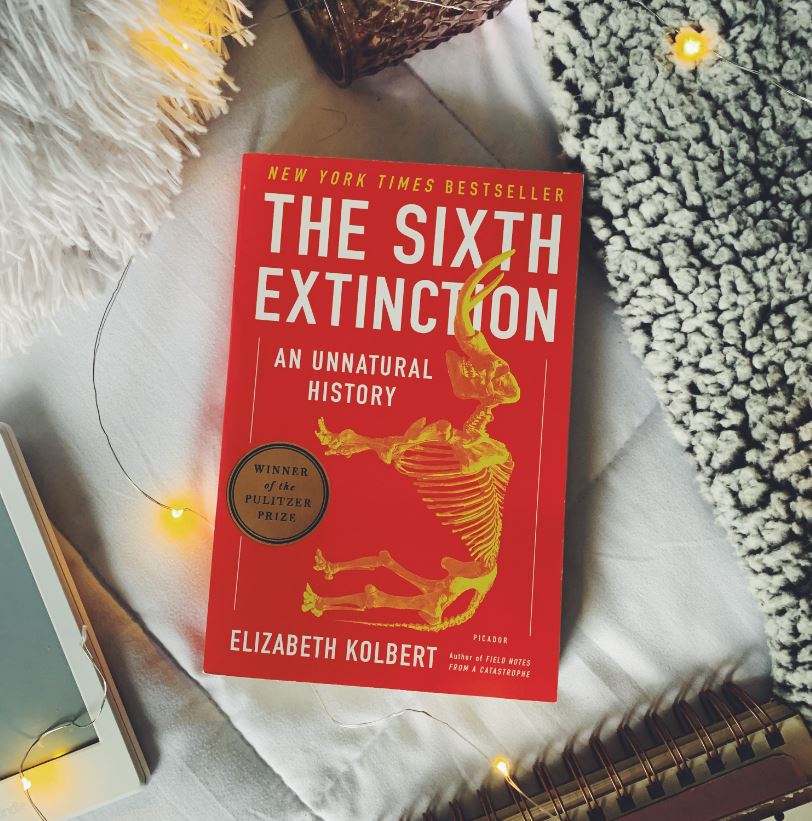
Elizabeth Kolbert, an American journalist and author, has been acclaimed for her work on environmental issues. Through her compelling writing, she explores the impact of human activities on the planet and challenges readers to confront the urgency of the environmental crisis.
In The Sixth Extinction, Kolbert examines the ongoing mass extinction caused by human actions. Drawing on scientific research and first-hand reporting, she presents a sobering account of the environmental challenges we face, highlighting the irreversible loss of biodiversity and the urgent need for conservation.
Kolbert’s work underscores the magnitude of the ecological crisis and the need for immediate action. The Sixth Extinction serves as a wake-up call, urging readers to understand the gravity of our impact on the planet and the imperative of preserving Earth’s biodiversity.
This book brings the environmental crisis to the forefront of public consciousness, making it accessible and compelling to readers from all backgrounds. Kolbert’s insights and storytelling contribute to the growing body of eco-literature that raises awareness and fosters a sense of responsibility towards the environment.
Now, let’s end with a wonderful yet sobering thought-experiment book – what would happen if we humans suddenly disappeared from the earth?
The World Without Us by Alan Weisman (2007)
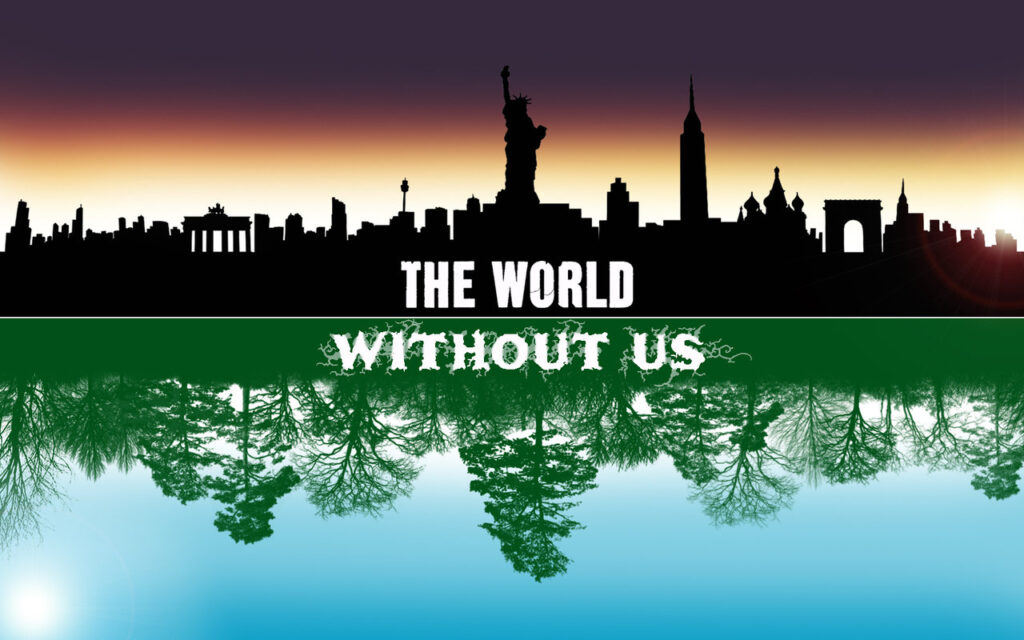
The World Without Us presents a thought-provoking exploration of what would happen to the Earth if humans suddenly disappeared. Weisman investigates the resilience of nature and contemplates the fate of human-made structures, offering insights into the potential for ecosystems to rebound in the absence of human influence.
Weisman’s thought experiment invites readers to consider the impact of human activities on the planet and the legacy we leave behind. It encourages us to reflect on our responsibility as stewards of the environment and to imagine alternative futures.
The World Without Us sparks contemplation about the interplay between humanity and the natural world, fostering a deeper understanding of our impact and the possibilities for coexistence. Weisman’s work prompts readers to reassess their relationship with the environment and advocate for sustainable practices.
Bonus Eco-Literature Books
Walden; or, Life in the Woods by Henry David Thoreau (1854)
A seminal work of transcendentalist literature chronicling Thoreau’s two-year retreat to a cabin in the woods. Through introspective reflections, Thoreau advocates for a simplified life and a deep connection with nature. Walden invites readers to contemplate the spiritual and philosophical dimensions of living in harmony with nature.
Unstoppable Us by Yuval Noah Harari (Vol 1 – 2022)
The most recent entry in this list, this one is an illustrated edition that aims to take young readers on a journey through the history of our species. Filled with fascinating facts and expressive illustrations, this is a stunning account of how we used our storytelling superpower for good and bad. A must-have addition to your bookshelves!
By the Same Author: Donning Rosie-Tinted Glasses: Discussing Don Tillman from The Rosie Project (2013)
